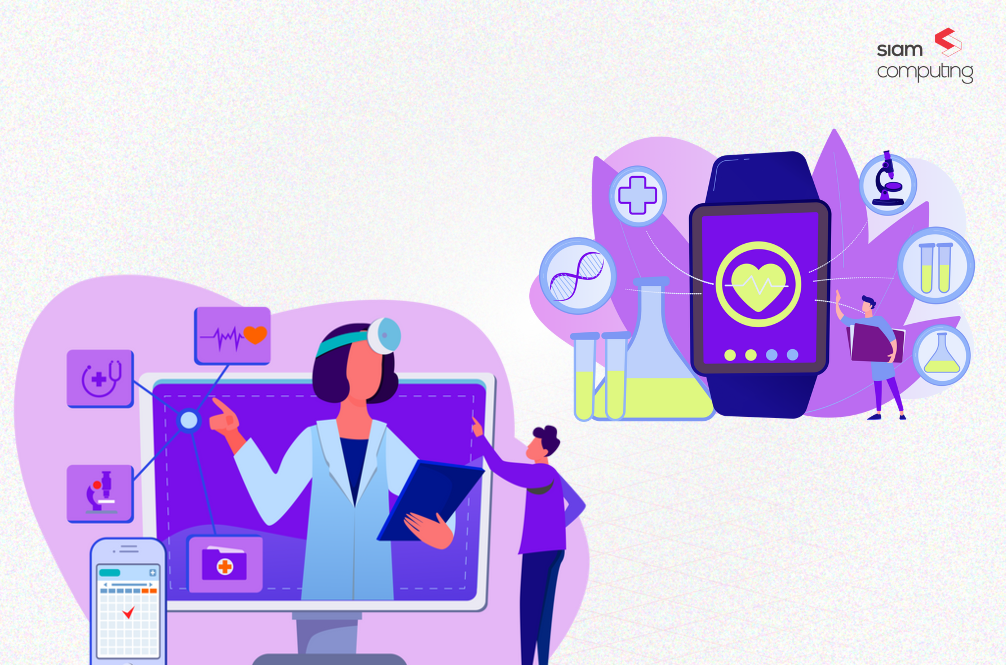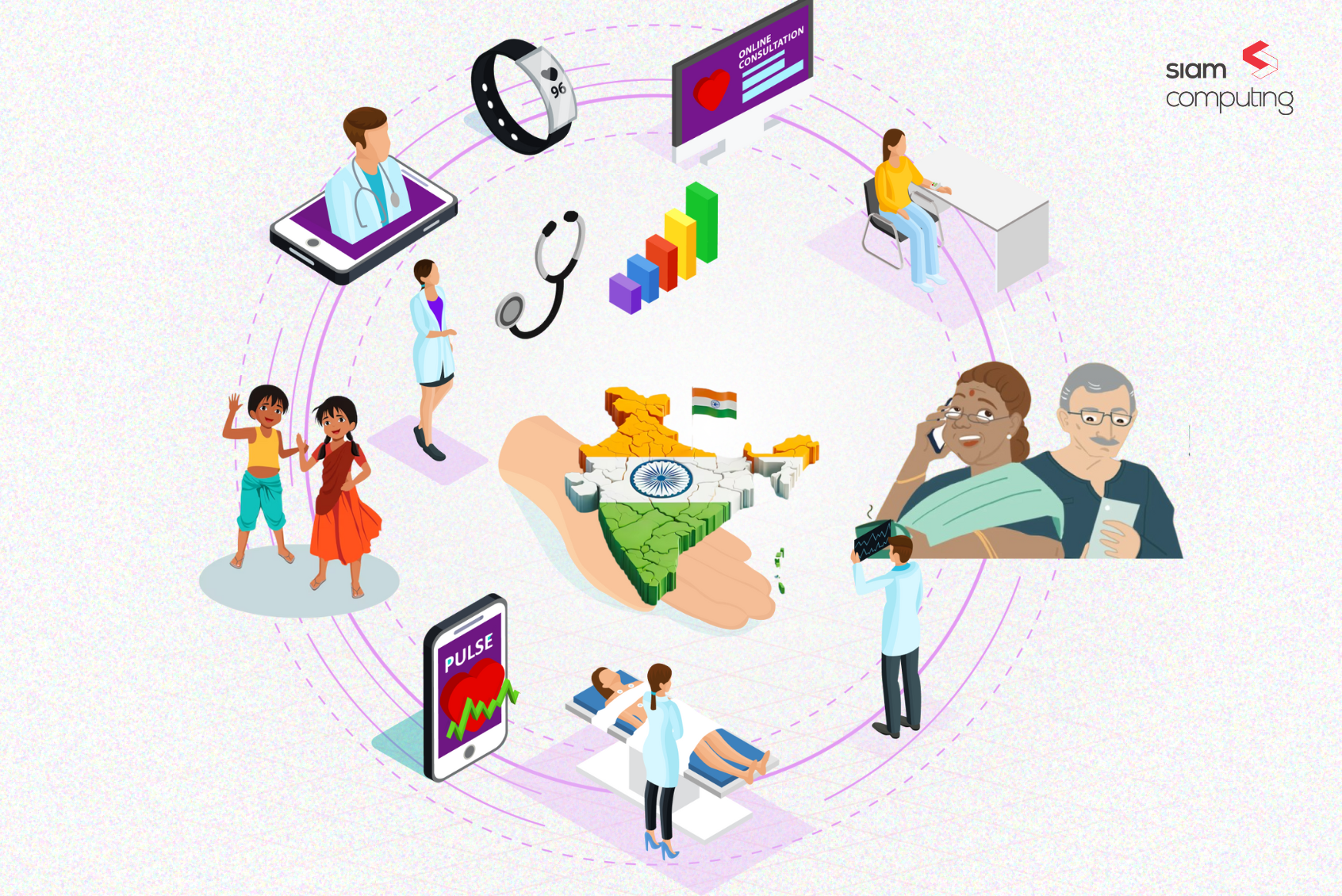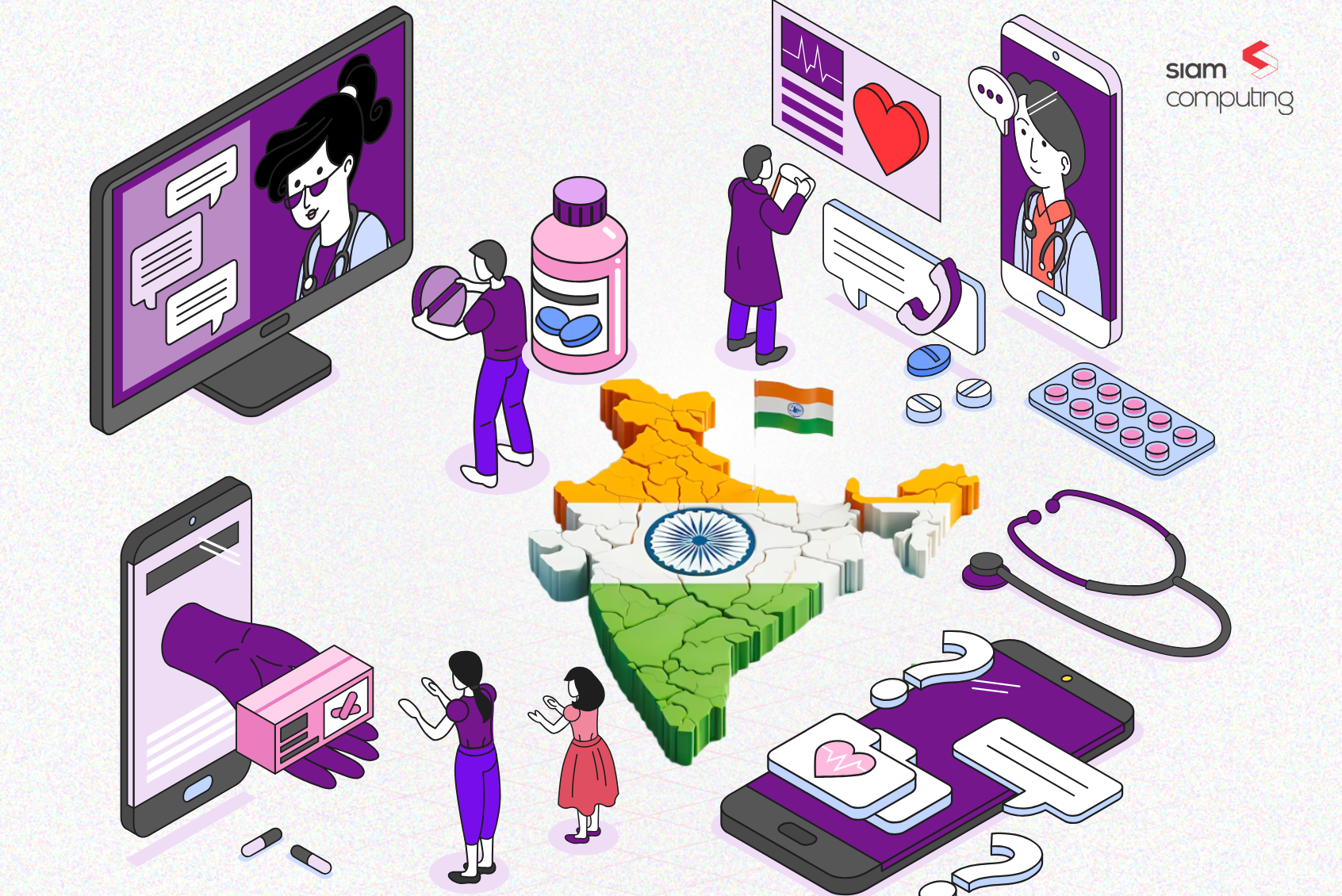The healthcare industry stands at the confluence of technology and care, where patient experience platforms are no longer optional but essential for efficient and accessible care delivery. From providing patients easy access to their medical records, and simplifying appointment and prescription management, to reducing communication gaps with healthcare providers, these portals have reshaped how patients interact with healthcare providers.
Today, with the rise of AI, innovations such as personalized treatment plans and automated query resolution have further revolutionized patient engagement. As we transition into a post-AI world, the question arises: is your patient experience platform equipped to adapt and thrive in this AI-powered future?
Current State of Patient Experience Portals
Patient experience portals have become essential in modern healthcare, and contribute significantly to patient satisfaction, reduce administrative burdens, and improve clinical outcomes. Patient portals offer several key functionalities that enhance healthcare delivery:
- Appointment Scheduling: Patients can book, reschedule, or cancel appointments online, providing convenience and flexibility. This feature has been widely adopted, with 67% of patients utilizing portals for scheduling purposes, as per a cross-sectional study from 2023.
- Access to Health Records: Portals allow patients to view their medical histories, lab results, and clinical notes, promoting transparency and patient engagement. In 2022, 90% of individuals who accessed their online medical records did so to view test results.
- Secure Messaging: Patients can communicate directly with healthcare providers, facilitating timely responses to health concerns. Approximately 56% of patients have used portals to message their physicians.
- Integration with Value-Based Care (VBC): Furthermore, patient portals are an integral cog in the wheel to achieving VBC delivery. With value-based care emphasizing the quality rather than the quantity of care, patient portals enable patient-centered care by giving individuals more control over their health management. This is evidenced by the increasing use of self-monitoring tools, symptom tracking, and data-driven feedback systems, all of which contribute to improved clinical outcomes.
Challenges in Current Patient Experience Platforms
Despite the progress, several challenges remain, hindering the effectiveness of patient experience portals:
- Lack of Personalization: Many portals fail to cater to the individual needs of patients, leading to difficulties in navigation and information retrieval. For instance, a study from 2024 found that 21.9% of patients reported challenges in navigating services and searching for information due to poor organization, complex user interfaces, and issues switching between pages.
- Interoperability Challenges: Integration with external systems and applications is often limited. A study found that patients frequently experience frustration when they encounter incompatible provider and payer portals or when they access services from multiple healthcare providers using different systems. This highlights the need for seamless interoperability across various data systems.
- Outdated Interfaces: Clunky, user-unfriendly designs continue to hamper patient engagement. The same study found that 10% of patients reported problems such as the app not opening properly, and 8.7% faced inconveniences when logging in.
The Post-AI World: What’s Changing?
AI is revolutionizing the world, and healthcare is no exception. In 2024, the global market size for AI in healthcare was valued at US$20.9 billion. By 2029 it is expected to grow to US$148.4 billion, with a 48.1% CAGR.
The integration of AI in patient experience platforms is already driving innovations that go beyond the current capabilities of existing systems used by most providers. Here are some of the key AI-driven advancements:
Personalized Recommendations: AI leverages patient data to deliver tailored health insights, proactive care reminders, and educational resources to individual patients.
Natural Language Processing (NLP): Enables conversational interfaces, allowing patients to interact effortlessly through text or voice.
Predictive Analytics: Identifies potential health risks and suggests preventive measures based on real-time and historical data.
Automation of Administrative Tasks: Imagine simplified appointment scheduling, prescription refills, and billing inquiries using intelligent automation.
How AI is Shaping the Future of Patient Experience Portals
The future of patient experience platforms is inherently tied to AI-driven innovations. Here’s how AI is set to revolutionize patient portals:
1. Hyper-Personalization through AI
In the future, AI will power patient portals to offer highly personalized experiences. Leveraging patient data such as medical history, lifestyle choices, and even genetic data, AI will generate customized care plans, preventive strategies, and even wellness recommendations. This level of personalization will ensure that patients receive the right care at the right time, tailored specifically to their unique needs.
Example: Imagine a patient with chronic asthma. The AI system could provide real-time medication reminders, offer breathing exercises based on air quality data, and suggest diet changes to reduce triggers—making the portal not just a tool for accessing records, but an integral part of the patient’s ongoing care plan.
2. Predictive Analytics for Proactive Care
AI’s ability to process vast amounts of health data and identify patterns will allow patient portals to offer predictive insights. For instance, AI could identify early signs of a potential medical issue, such as the early onset of diabetes or heart disease, based on changes in a patient’s health metrics over time.
Example: If a diabetic patient’s blood sugar levels are fluctuating more than usual, AI could notify the patient, suggest lifestyle changes, and alert their healthcare provider to ensure timely intervention. Predictive analytics will shift healthcare from a reactive to a proactive model, ensuring better long-term outcomes.
3. Conversational AI for Seamless Interactions
AI-powered chatbots and virtual assistants will become integral to patient portals. These systems, powered by natural language processing (NLP), will allow patients to interact with their portals in a human-like manner. Whether it’s scheduling appointments, checking test results, or even analyzing symptoms, conversational AI will provide a user-friendly and intuitive experience.
Example: A patient could simply ask their portal, “What are my test results?” or “Can I book an appointment for next Thursday at 2 PM?” The system would understand and process the request without the need for manual input or complex navigation.
4. Intelligent Data Integration
One of the biggest challenges in healthcare today is the siloing of patient data. In a post-AI world, patient portals will seamlessly integrate data from various sources, such as EHRs, wearables, mobile apps, and even external providers. AI will ensure that all this data is interpreted and presented in an easy-to-understand format.
Example: A portal could aggregate data from a patient’s wearable fitness tracker, clinical visits, and genetic history to present a comprehensive view of their health. This would allow healthcare providers to make more informed decisions based on a complete data set.
5. Smart Resource Allocation
AI will also help healthcare providers optimize their operations, from managing appointment slots to ensuring that medical resources are allocated efficiently. AI algorithms can predict when certain services will be in high demand, allowing providers to adjust staffing levels and equipment availability accordingly.
Example: If a certain healthcare provider sees a spike in demand for flu shots during the winter months, AI can help them allocate the right number of nurses and vaccines in advance, minimizing wait times and improving the patient experience.
6. Increased Security and Privacy
As healthcare data becomes increasingly digitized, ensuring security and privacy is paramount. AI will play a crucial role in enhancing cybersecurity by detecting unusual patterns in patient data access, identifying potential breaches, and ensuring compliance with data protection regulations like HIPAA.
Example: AI could monitor access patterns in real-time and flag unusual behavior, such as a healthcare provider accessing a patient’s records without proper authorization. This would prevent unauthorized access and ensure that patient data remains secure.
7. Continuous Learning for Improved Outcomes
AI is self-improving, meaning the more data it processes, the more it learns and adapts. This continuous learning ability will ensure that patient portals evolve alongside advancements in healthcare practices and technologies.
Example: Over time, as AI processes more patient data and learns from outcomes, the portal’s recommendations for treatment plans will become increasingly accurate, improving patient outcomes and enhancing care delivery.
Key Challenges in building a future-proof, AI-driven Patient Portal?
As exciting as AI’s potential is, there are several hurdles that need to be addressed for the development of truly future-proof, AI-powered patient portals in India:
1. Data Integration and Interoperability
The healthcare ecosystem is fragmented, with data housed in multiple systems across different platforms with varying standards. Achieving interoperability—ensuring seamless communication between these systems—is a significant challenge and requires robust APIs and compliance with standards like HL7 and FHIR. AI can only unlock its full potential if it has access to a comprehensive and unified dataset.
2. Adopting AI Without Overcomplicating UX
Integrating AI into patient portals should simplify and enhance the user experience, not complicate it. With patients of varying ages, technical skills, and abilities, ensuring that the portal is accessible to everyone is paramount. These tools may deter patients from engaging with the portal if they are not user-friendly.
3. Ensuring Data Accuracy
AI systems require large datasets to function effectively. In India, challenges such as incomplete health records and data fragmentation can impede AI accuracy. Ensuring data accuracy is vital, as inaccuracies can lead to misdiagnoses or inappropriate treatment recommendations, leading to loss of trust.
4. Building Trust and Removing User Resistance to AI
Building trust also involves transparency in how AI algorithms make decisions, which is essential for patient acceptance. Patients and healthcare providers alike may be hesitant to adopt AI-powered systems due to concerns about reliability or lack of understanding. Building trust in AI will require clear, explainable outcomes and user education.
5. Cost and Implementation Barriers
Implementing AI-driven solutions entails significant costs, including technology acquisition, infrastructure development, and training healthcare professionals. In India, where healthcare budgets are often constrained, especially in public health sectors, these costs can be prohibitive. A phased rollout, focusing on high-impact areas, can help manage expenses.
6. Ensuring Data Privacy and Security
While AI can enhance security, building AI systems that comply with strict privacy regulations such as HIPAA is crucial. Healthcare providers also need to implement end-to-end encryption, user authentication protocols, and secure data storage to prevent breaches. In 2022, the Indian healthcare industry experienced more than 1.9 million cyberattacks, including a significant attack on the All India Institute of Medical Sciences (AIIMS) in New Delhi. Protecting patient data requires robust cybersecurity measures, regular system audits, and compliance with data protection regulations to safeguard sensitive patient information.
Elevate your Hospital Operations with future-proof, AI-driven Patient Experience Portals
As healthcare continues to advance, outdated systems will hold organizations back. By upgrading to AI-driven patient experience portals, healthcare providers can improve patient satisfaction, streamline operations, and remain ahead of industry changes.
At Siam Computing, we specialize in creating robust, scalable digital solutions for the healthcare sector. Our expertise in web portal development ensures your patient experience platform is not only up to date but also future-proof, ready to integrate the innovations of tomorrow.
Let’s partner together to enhance your patient experience platform and help you navigate the AI-driven future.








